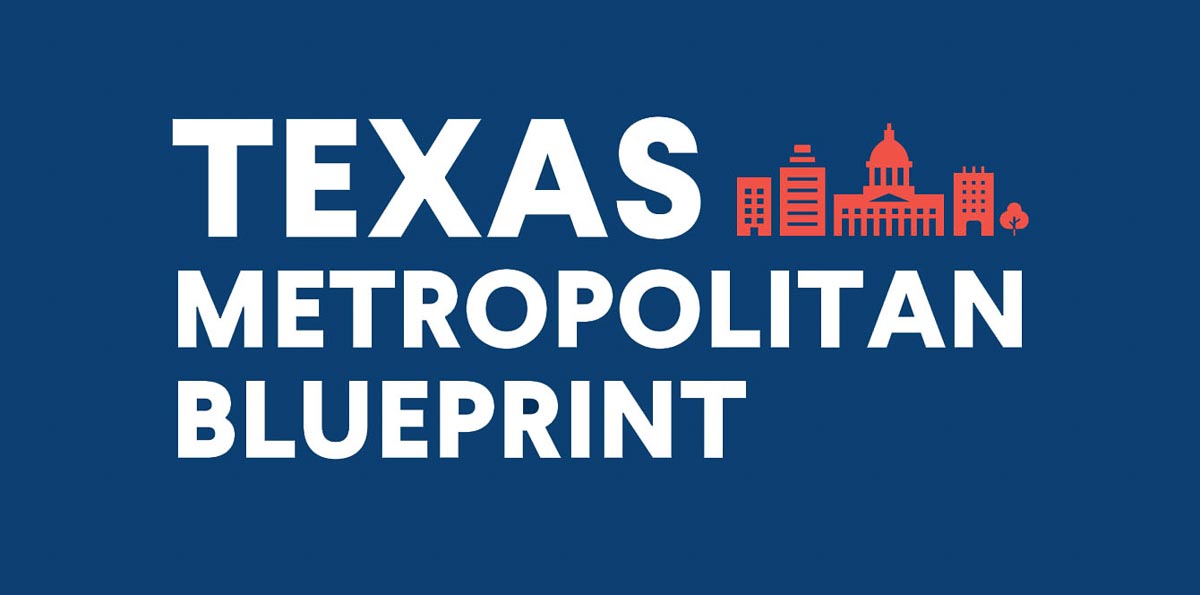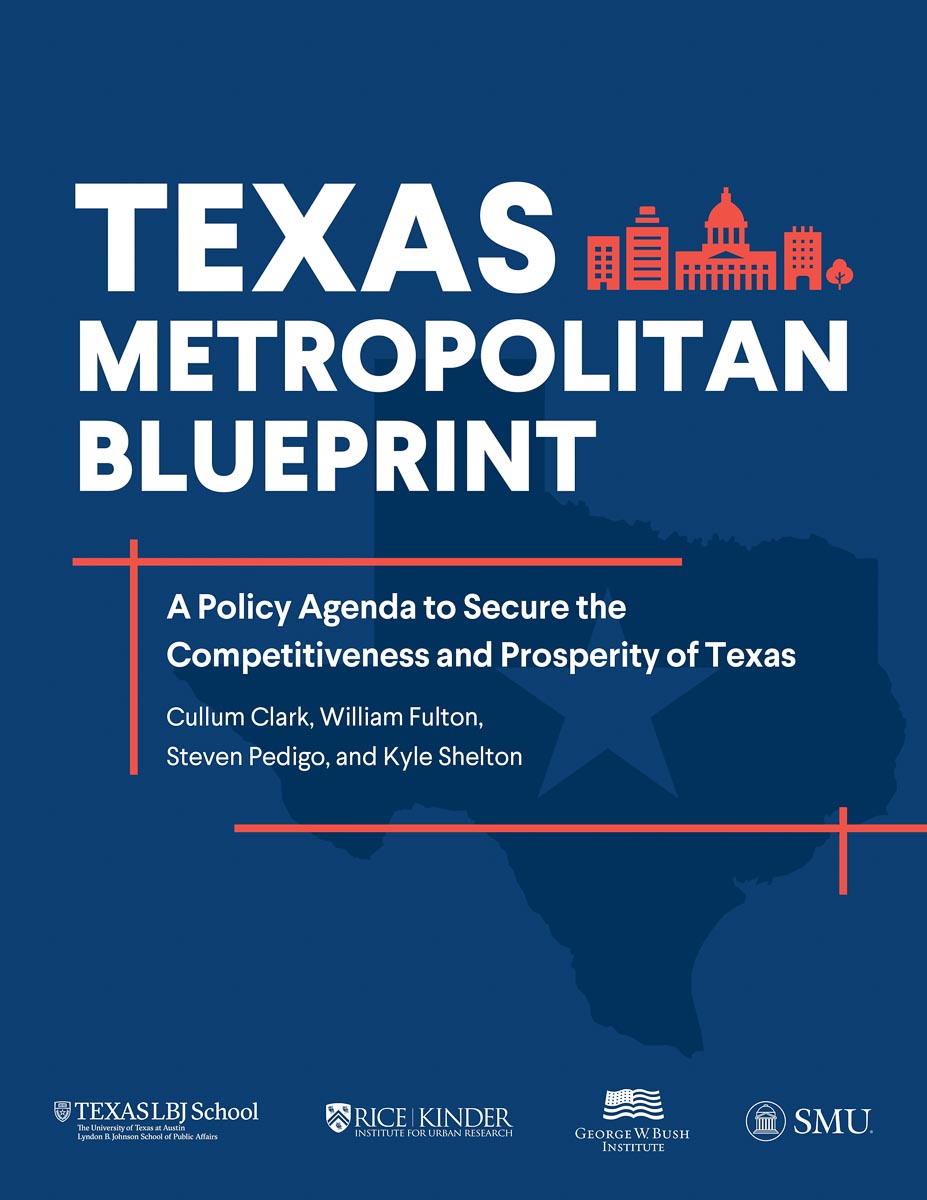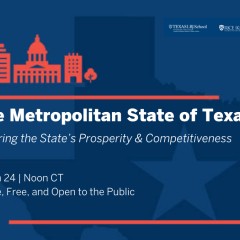A webinar on March 24 at 12:00 pm convened the state's top urban policy researchers for a summit addressing the most important issues in Texas cities: economic development, land use, housing, infrastructure and transportation. Watch a recording of the webinar here.
Metropolitan regions are home to 9 in 10 Texans, and they are the state’s economic engines. They need a slate of policies that improves the quality of life for all their residents— and at the same time drives their competitiveness.
This Texas Metropolitan Blueprint lays out recommendations for policies that address the most important economic development, land use, housing, infrastructure, and transportation challenges of the state’s metropolitan areas. Each is critical to speeding Texas’s economic recovery and securing its long-term prosperity.
Three guiding principles inform this blueprint:
- Texas should invest in Texans and do so in an equitable way. While Texas’s low-tax/low-regulation climate is good for business attraction, it is reaching its limits—going forward, the state’s growth must be supported by substantial investments in its human capital.
- Texas should devolve more, not less, decisionmaking authority to local communities. Simply put, Texas should be empowering local innovation, not blocking it.
- Texas should increase and improve its publicprivate- nonprofit partnerships. Texas should become a national leader in advancing cross-sector, marketdriven solutions to pressing metropolitan challenges
In addition, the blueprint outlines 21 specific priorities for economic development, land use, housing and transportation and infrastructure, including closing the digital divide in metro and rural areas; strengthening anchor institutions to catalyze community development; investing in border and international trade infrastructure; promoting the development of market-rate housing; increasing state incentives and funding streams for housing; maintaining renter protecting; and expanding funding opportunities for infrastructure, maintenance and expansion.
A product of a cross-sector collaboration in its own right, this blueprint draws on the expertise of our three institutions— the George W. Bush Institute-SMU Economic Growth Initiative in Dallas, the Kinder Institute for Urban Research at Rice University in Houston, and the LBJ School of Public Affairs Urban Lab at the University of Texas at Austin—as well as the insights of more than 50 of the state’s leading practitioners, policymakers, and business leaders from across the political spectrum and from every part of Texas. These include former cabinet secretaries, mayors, members of the legislature, chamber of commerce leaders, private-sector executives, and nonprofit leaders.
Access the report here.








